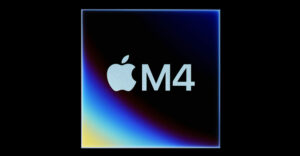
Microsoft will preview specially made Windows tablet software as soon as this week, Bloomberg recently reported.
It will showcase the operating system’s touchscreen interface running on hardware that uses an Nvidia Tegra chip, according to the report.
“Right now, the stated strategy is to have Windows 8 run on everything except smartphones,” Rob Enderle, principal analyst at the Enderle Group, told TechNewsWorld.
“I’ll be at Computex next week, so I’m hoping the rumors are true and that I’ll get a sneak peek at some new Windows-based tablets,” Tom Mainelli, a research manager at IDC, told TechNewsWorld on Friday.
Computex, a major high-tech show held in Taiwan, is the second-largest computer exhibition in the world.
Microsoft spokesperson Emma Mahoney told TechNewsWorld the company “has nothing to share at this time.”
Do You Want to Know a Secret?
There’s no doubt that tablets and future OS releases are touchy topics at Redmond.
Last week, Microsoft CEO Steve Ballmer said Windows 8 will go on sale next year. He was contradicted shortly afterward by his staff, who claimed there was a “misstatement.”
Microsoft hasn’t officially named the next version of Windows yet.
The Answer Is Blowing in the Wind
There’s still no real clarity about what Windows 8 will do. There’s speculation that Windows 8 and the tablet software Microsoft is rumored to show this week will be very similar, if not one and the same.
“Windows 8 will work on ARM and x86 processors, and it will run on high-efficiency tablets and notebooks and mainstream products,” Enderle stated.
“It’s very likely we’ll see tablets and PCs converge, and even Apple’s talking about the next major release of OS X getting features from iOS,” he added.
However, IDC’s Mainelli has a different take on the OS.
“I think it’s safe to say there will be a version of Windows for desktops and notebooks, and one for media tablets,” Mainelli suggested. “How different or similar they will be is anybody’s guess at this moment.”
Windows 7 is touch-enabled and is used in tablet PCs, but not media tablets that are consumption devices like the iPad is, Mainelli pointed out.
“There’s a big difference between being touch-enabled and touch-optimized,” Mainelli explained. “Windows 7 is really designed for a mouse and keyboard, and using its touch interface is a clunky, frustrating experience at best,” he elaborated.
“Microsoft’s challenge is to create a comparable experience to the iPad, and they’re not good at that,” Carl Howe, director of anywhere consumer research at the Yankee Group, told TechNewsWorld.
“It’s taking them years, and they’re still playing catch-up,” Howe remarked.
Slow and Steady, or Just Slow?
The tablet market is “moving very fast,” which has “put a lot of pressure on Ballmer” because Microsoft won’t be in the market until 2012, Enderle said.
That makes investors restive, Enderle explained, pointing to a statement by Greenlight Capital head David Einhorn Thursday that Microsoft should fire Ballmer. That call sent Microsoft shares up 2.5 percent in response.
Does Microsoft still have a chance to make some headway in the tablet market despite the delay?
“The tablet market is 30 million units a year and the notebook market 300 million units a year, and if Microsoft converges the mainstream, notebook and tablet operating systems, they’ll be the dominant vendor,” Enderle stated.
The move toward tablets will take “at least five years” to mature, which gives Microsoft a shot for success, Enderle suggested.
“There are plenty of people and companies that would be interested in a Windows-based tablet,” IDC’s Mainelli said. “The real question is, how late are they going to be?”
If products running a new Windows tablet OS don’t ship until late 2012 or early 2013, that will be “a big problem” because by 2013, Apple will be on its third or fourth iteration of the iPad and Android tablet makers “will have sorted out a lot of their early problems,” Mainelli pointed out.
While IT buyers might be willing to wait that long, consumers might not.
“Once a consumer is committed to an OS, it will be hard to convince them to switch,” Mainelli cautioned.





















































